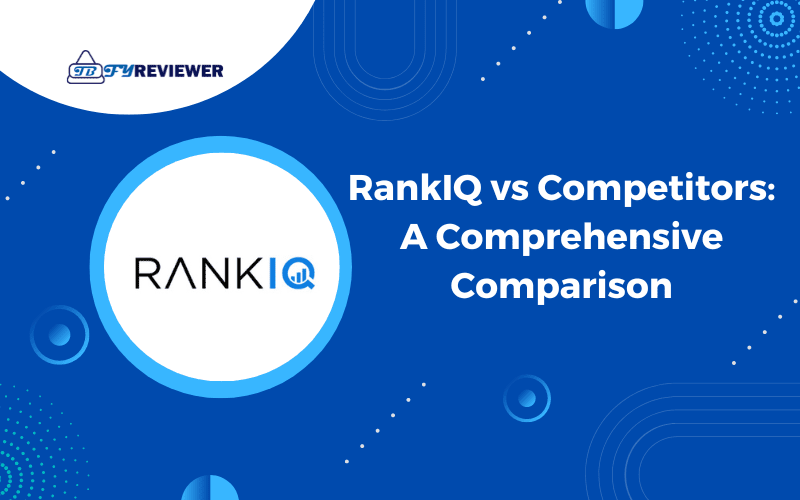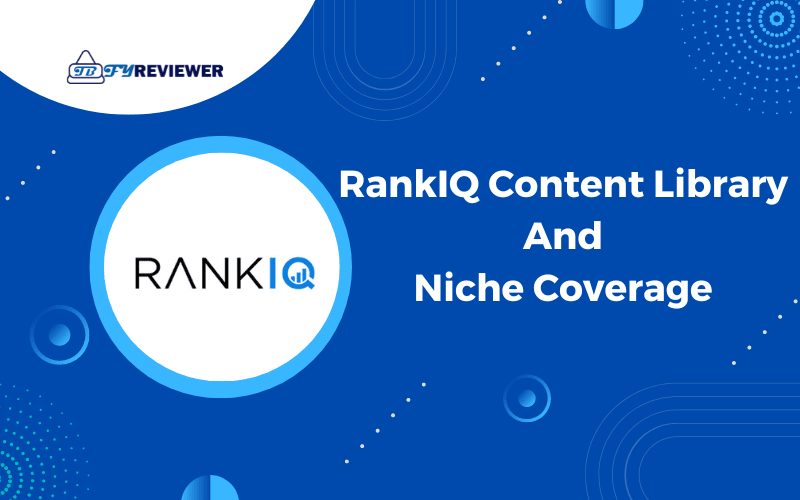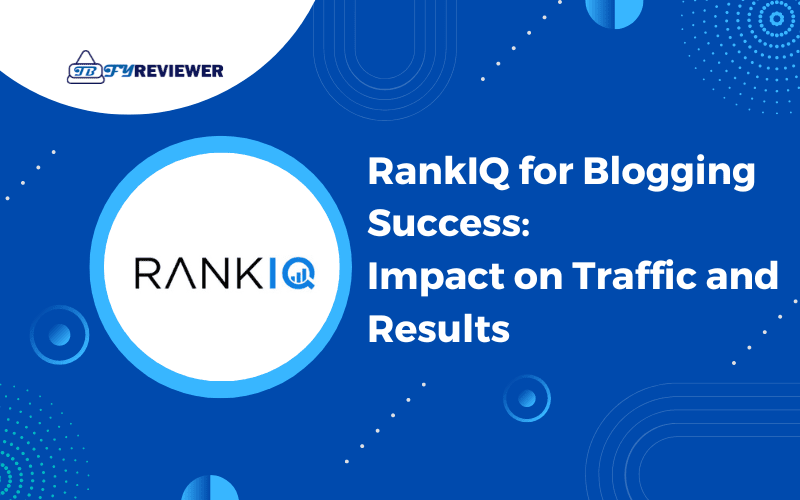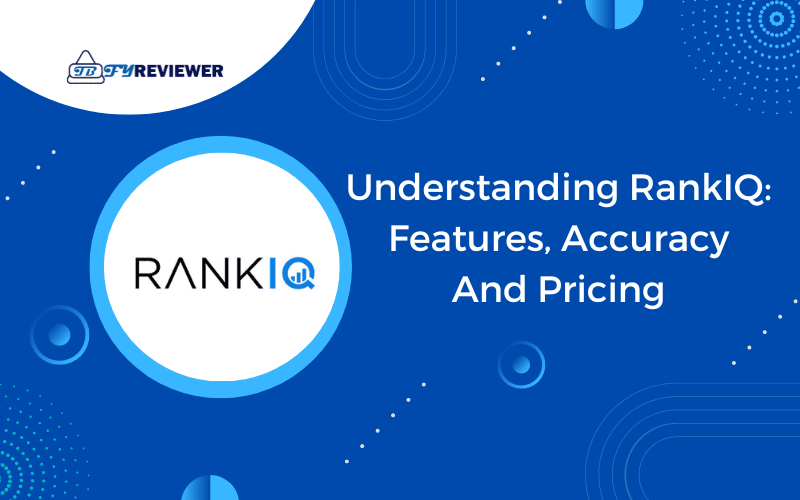Join TbfyReviewer’s newsletter to receive every new article.
The Ultimate SEO Tutorial for Beginners: Become an SEO Pro
Hossam jamjama
- June 26, 2023
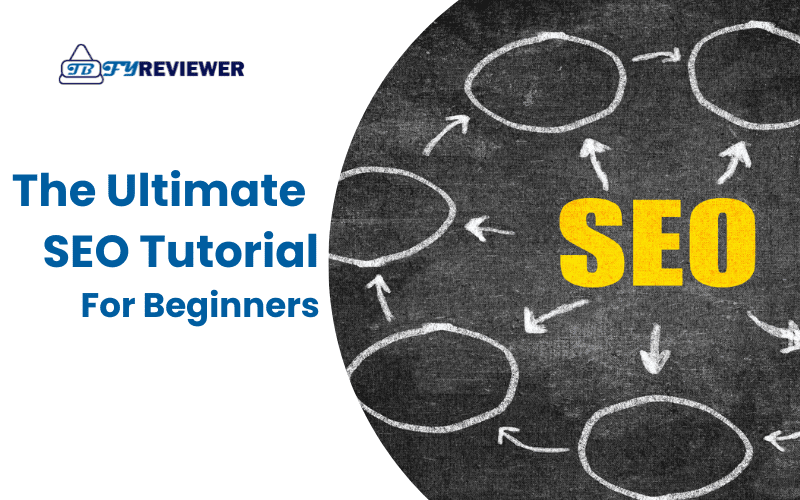
Welcome to “The Ultimate SEO Tutorial for Beginners”. As businesses increasingly shift their operations online, optimizing a website for search engines has become more important than ever.
SEO Tutorial for Beginners is the practice of optimizing your website to rank higher in search engine results pages (SERPs) and drive more traffic to your site. It’s a crucial part of digital marketing and can help businesses of all sizes improve their online presence to reach their target audience.
In this guide, we’ll cover everything you need to know about SEO and how to implement it effectively on your website.
We’ll also provide helpful tips and tricks along the way to ensure that you’re optimizing your website properly. If you are new to the world of SEO, this is the perfect place to start.
Whether you’re starting a new website from scratch or wanting to improve an existing one, this ultimate guide will equip you with the knowledge and tools needed to master SEO and achieve your online goals.
So, let’s dive in and take your online business to the next level with our step by step SEO tutorial for beginners.
What is SEO?
Before we dive into the details, let’s define what exactly SEO is. Search engine optimization (SEO) refers to the practice of improving your website’s visibility and ranking in search engine results pages (SERPs).
The goal of SEO is to drive organic traffic to your website by increasing its relevance and authority in the eyes of search engines like Google.
Importance of SEO
In today’s digital age, websites can make or break a business. With countless websites available online, having a significant online presence is crucial to stand out amongst the crowd.
SEO allows businesses to increase awareness about their products or services and drive potential customers to their websites.
Key Concepts of SEO
Keyword research
Keyword research is one of the most important aspects of SEO. It involves finding relevant keywords that people are searching for and incorporating them into your content.
By using targeted keywords in your content, it becomes easier for people to find your website when they conduct searches related to your industry.
On-page optimization
On-page optimization refers to optimizing individual web pages on your website to improve their visibility and ranking in search engine results pages (SERPs).
It includes optimizing page titles, meta descriptions, header tags, URLs, images and internal linking.
Off-page optimization
Off-page optimization refers to all the activities you can do outside of your website that help increase its visibility and ranking in SERPs.
This includes link building strategies such as guest blogging, social media marketing and influencer outreach.
Understanding Keyword Research
Keywords are the backbone of SEO. They are the words and phrases that users type into search engines when looking for relevant information or solutions.
Keyword research is the process of finding and analyzing these keywords.
Targeting the right keywords can significantly improve your chances of ranking higher on the SERPs.
Types of keywords
There are two types of keywords:
Short-tail keywords
Short-tail keywords are short and general search terms (usually one or two words) that describe your product or service.
They have higher search volumes but are more competitive, making them harder to rank for.
Long-tail keywords
Long-tail keywords are more specific phrases (usually three or more words) that describe your product or service in more detail.
They have lower search volumes but are less competitive, making it easier to rank for them.
Importance of keyword research
To optimize your website for search engines, you need to understand which keywords your target audience is using to find information related to your industry or business.
Keyword research involves identifying these relevant keywords and incorporating them strategically into your website’s content.
As a result, this will attract high-quality traffic to your website and increase your chances of converting visitors into paying customers.
Keyword Research Process
The keyword research process involves identifying relevant keywords related to your niche or business. Here’s how you can conduct effective keyword research:
- Identify your niche or industry.
- Brainstorm possible keywords.
- Use keyword research tools like Google Keyword Planner or SEMrush.
- Analyze the search volume, competition level, and relevance of each keyword.
- Select high-value keywords with low competition.
Keyword research tools
To conduct effective keyword research, you can use a variety of online tools, such as SEMrush and Ahrefs. Here are some options for those on a budget:
Google Keyword Planner: the best choice if you don’t want to use paid tools.
KeySearch: one of the best affordable keyword research tools. Read our full review of KeySearch for more info.
RankIQ: the best one for bloggers and content creators. Read our RankIQ in-depth review for more details.
You can check out our list of the best SEO tools, and choose the right one for your needs and budget.
These tools will help you find relevant keywords and analyze their search volume, competition level, and potential traffic.
On-Page Optimization
On-page optimization refers to the various factors you can control on each individual web page of your website to improve its visibility in search engine results pages (SERPs).
Importance Of on-page optimization
Effective on-page optimization increases the chances of getting ranked for relevant keywords, which eventually leads to attracting a targeted audience.
Well-optimized webpages also result in a better user experience and a better chance for users to return repeatedly.
On-page optimization techniques
On-page optimization techniques include optimizing title tags, meta descriptions, header tags, URL structure, image optimization, content optimization, internal linking, and URL optimization, which will improve web page ranking.
Title tag optimization
The title tag is the text that appears in the top bar of your web browser and shows up as the clickable headline in SERPs.
It should be descriptive, contain the target keyword, and be no more than 60 characters.
Meta description optimization
The meta description is the snippet of text that appears below the title tag in SERPs.
It should be concise and informative, contain the target keyword, and be no more than 155 characters.
Header tag optimization
Header tags (H1, H2, H3) help search engines to understand the structure and importance of your content.
Use header tags to divide your content into sections and optimize them with relevant target keywords.
- The H1 tag is for the title.
- H2 tags are for main headings.
- H3 tags are for subheadings.
Content optimization
Content is king when it comes to SEO. High-quality content attracts more visitors and helps build authority for your website.
Ensure that your content is well-written, informative, original, and relevant to your business niche.
Include target keywords in your headlines, meta descriptions, subheadings, and body text in a natural way that enhances the reader’s experience.
Image optimization
Images on websites facilitate a better visual impact among users, and they can help reduce bounce rates by keeping viewers interested for longer periods of time.
Google recommends using alt text to give descriptions to images since they read that information, which eventually leads to higher search ranks.
Internal linking
Internal linking refers to linking pages on your website within a common page or multiple headers in order to increase the user experience by easily moving back and forth between topics related to each other.
By having internal links, you may increase website dwell time (how long visitors spend on your pages), thus improving your overall page ranking.
URL optimization
URLs should be descriptive and contain targeted keywords. Keep them simple; avoid using numbers or irrelevant characters such as underscores or punctuation marks.
URLs should be short if possible, but still clear enough so that search engines understand what kind of content they hold.
Generally, keep URLs concise and descriptive for easy understanding by users and crawlers.
Off-Page Optimization
Off-page optimization refers to all the techniques applied outside of your website that help improve its ranking and visibility on search engines.
Importance of off-page optimization
Off-page optimization is important for SEO since it plays a vital role in determining how relevant your website is to the industry you serve.
This activity helps improve brand awareness, improve referral traffic, and increase domain authority (DA), hence making it valuable.
Off-page optimization techniques
Link building
Link building entails acquiring links from other websites pointing to your web pages. It helps increase brand awareness, thereby raising site traffic volume.
However, it must be done ethically since black-hat link-building practices may lead to Google penalization.
Social media marketing
Social media marketing entails maintaining an online presence via social media platforms such as Twitter, Facebook, and LinkedIn, plus more, to connect with potential customers, increase brand awareness, and encourage engagement.
This increases visitor count, which may increase conversion rates, hence positively affecting your site’s domain authority.
Guest blogging
Guest blogging involves writing articles for other websites that are in line with your own industry.
By featuring your content on other websites, you are introduced to their audience, which may lead to getting backlinks as well as direct traffic.
Influencer outreach
Influencer outreach involves finding prominent bloggers or social media influencers in your niche or industry and reaching out to them for collaborations or paid promotions.
By having them endorse your product or service, you both help promote each other’s brand awareness and thus rank better in search engines.
Technical SEO
Technical SEO refers to the behind-the-scenes optimization tactics that make it easier for search engine bots to crawl and index your website.
This includes tasks like fixing broken links, optimizing site speed, and implementing schema markup.
Importance of technical SEO
Improving website technical infrastructure ensures fast load times, improved website accessibility for mobile devices, and a better user experience, which contribute significantly to increased traffic volume and assist in maintaining a desirable page ranking within SERPs.
Technical SEO techniques
Website speed optimization
Website speed optimization is the practice of eliminating any hindrances that could cause slow load times.
Technical SEO practices such as image compression and hosting optimizations are recommended solutions.
Mobile Optimization
Mobile Optimization involves making web pages optimized for mobile device viewing.
This is vital in today’s world, as most searches are done via smartphones due to their portability and accessibility since they can be carried anywhere.
Site structure optimization
Site structure optimization entails building a hierarchy that makes it easier for users to easily navigate through your page as well as assisting Googlebot with better site ranking by ensuring maximum weight is placed across your core pages.
Schema markup implementation
Schema Markup Implementation involves informing search crawlers about your website’s content in a more explicit, structured format.
These could include recipes, reviews, product types, and others. This helps in organizing website structure with a presentation on rich snippets, creating higher CTR!
Local SEO
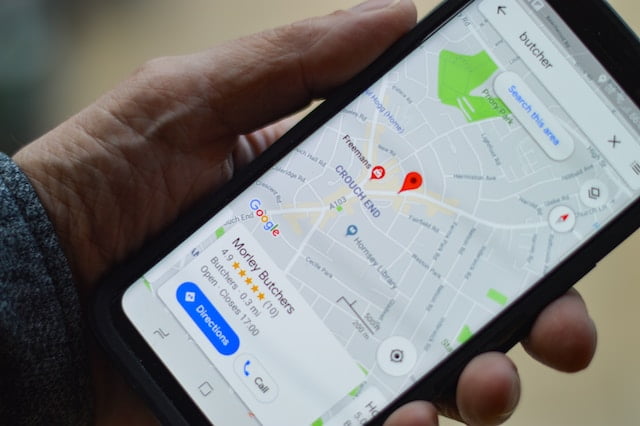
If you have a physical storefront or provide services within a specific geographic area, local SEO is important for ensuring that people in your area are able to find you online.
Local SEO focuses on optimizing your website to appear in location-based searches to promote relevant traffic within specific regions or areas where your business operates.
This involves optimizing your Google My Business listing and local directories, as well as incorporating location-specific keywords into your content.
Importance Of Local SEO
It’s imperative to utilize local SEO, as it assists small businesses in making sure they remain competitive within their serviceable area. Which may increase brand visibility and help them obtain more leads/customers within their travel range.
Local SEO techniques
Google My Business optimization
Google My Business is a powerful asset where online visibility is concerned.
It allows a listing to appear on Google Maps, allowing customers to access directions, business contact information, and daily operation hours through this source.
Local keyword research
Include keywords that feature the names of cities or towns in locations where your business operates, placing greater emphasis on targeted audiences within certain areas.
Local link building
Get links from other websites that operate in the same location as you.
Directories that make it easy for people to find physical stores or businesses based on their locality provide useful backlinks that increase local visibility.
Customer reviews
Encourage customers to rate your products or services on review sites like Yelp and TripAdvisor, among other reputable platforms.
Reviews build trust and confidence in potential customers, increasing the chance of direct traffic.
Content Marketing

Content marketing plays a crucial role in SEO, as search engines prioritize websites that produce high-quality, informative content. It involves creating valuable and relevant content that targets a specific audience.
Great content increases engagement, attracts backlinks, and improves your website’s reputation.
Definition of content marketing
Content Marketing is when information is published online that attracts relevant traffic while encouraging engagement via shares and likes and through quality assessment earns backlinks from other reputable websites.
Importance of content marketing in SEO
Content marketing is critical in SEO; it helps search engines understand explicit topics of websites or web pages.
Great Content serves as a magnet that attracts site visitors while building authority for your business within the industry it serves.
This strategy helps increase engagement, traffic growth, and brand promotion. Which leads to higher chances of being linked to larger audience channels.
Content Marketing Techniques
Here are some popular techniques used in content creation:
Blogging
Blogging allows you to create regular, fresh content for your website that can be targeted towards specific keywords and topics relevant to your industry.
This helps to build authority and relevance with search engines, which can improve your website’s overall ranking.
Infographics
Infographics are visually appealing representations of data or information.
They can help to generate backlinks to your website and increase its visibility on image-based search engines like Google Images.
Videos
Producing engaging videos can help to keep users on your website longer, which indicates to search engines that your site has valuable content.
Videos can also contribute to improved social shares and backlinks.
E-books
E-books are a great way to offer in-depth knowledge on a particular topic while simultaneously growing your email list through lead capture forms.
Offering e-books can make you an authoritative figure in your industry and increase traffic through referral links and social shares.
Measuring SEO Success
It’s important to track your SEO progress over time so that you can continually optimize your website’s performance.
Appropriate measurement of SEO efforts is crucial for gauging success and determining whether there is room for improvement.
Here are some key performance indicators (KPIs) that help measure SEO success:
Organic Traffic
Organic traffic reflects the number of people visiting your website through search engine results pages rather than paid advertising or social media links.
Keyword Rankings
Keyword rankings determine how well your site ranks on SERPs when target keywords related to your niche are searched by users actively.
Backlinks
Backlinks indicate the number of reputable third-party websites linking to content on your website.
Higher quality and quantity backlinks will improve visibility in SERPs.
Conversion Rates
Conversion rates reflect the percentage of visitors who complete actions intended by the website owner (such as purchases, subscriptions, sign-ups, etc.).
Measuring Tools
Here are some measuring tools that you can use in SEO include:
Google Analytics
Google Analytics is a free tool that allows you to track user behavior on your website.
It’s essential for tracking KPIs like organic traffic and conversion rates.
Google Search Console
Search Console provides insights into how Google crawls and indexes your website.
It allows you to identify technical issues that may be holding back your ranking potential.
SEMrush
SEMrush is a paid tool that provides a comprehensive look at your website’s SEO performance. It can help you track keyword rankings, monitor backlinks, and audit your site for technical issues.
You can check out our list of the best SEO tools, and pick the right Measuring tool for your needs and budget.
Common SEO Mistakes to Avoid
Avoiding common SEO mistakes can be the difference between success and failure in your optimization efforts. Here are some things to avoid:
Keyword Stuffing
Keyword stuffing is the practice of excessively or unnaturally adding target keywords to improve visibility on SERPs.
Using too many keywords on a website can actually harm its ranking potential. Instead, focus on incorporating relevant keywords naturally into high-quality content.
Duplicate Content
Duplicate content occurs when identical or similar content is present on multiple web pages or domains.
It dilutes your SEO rankings, confuses search engines, and affects user experience. Make sure all of your content is unique and original.
Poor Website Architecture
A poorly designed website results in a suboptimal user experience and difficulty in indexing essential pages by search engines.
So make sure your website is organized and easy to navigate.
Ignoring Mobile Optimization
With an increasing number of users accessing the internet through mobile devices, mobile optimization is crucial for both user experience and search engine rankings.
Failing to optimize for mobile leads to negative user experience and lowers SEO rankings. You need to make sure your website is optimized for all mobile devices.
Understanding these common mistakes and avoiding them helps achieve optimal results in SEO marketing campaigns.
How to do SEO yourself - Infographic
Here is a simple infographic on How to do SEO yourself step by step.
Feel free to share it, but don’t forget to mention the source 🙂
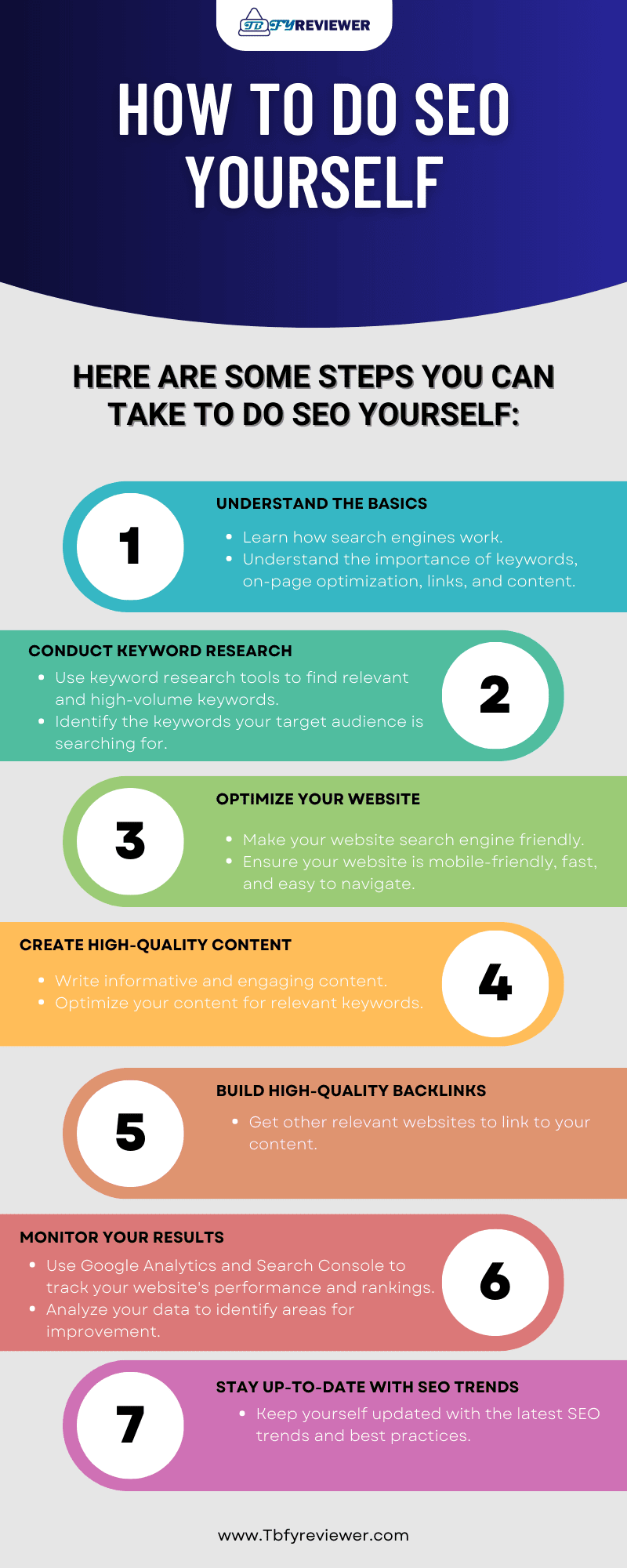
Remember, SEO is a continuous process that requires patience and effort. By following these steps, you can improve your website’s visibility and drive more organic traffic to your site.
Conclusion
In conclusion, mastering the art of SEO is crucial for any online marketer looking to improve their brand’s visibility and succeed in today’s digital landscape.
This comprehensive guide has covered all the essential techniques, tips, tools, and pitfalls to consider when optimizing your website for search engines.
By implementing the best practices outlined in this SEO tutorial for beginners, including content marketing strategies and ongoing analysis of your progress, you will be well on your way towards achieving long-term success.
Whether you are a beginner or an experienced professional, always remember that SEO is a dynamic field that requires continuous learning and adaptation to remain effective.
So start optimizing now and watch your online presence soar!
- Last Update OnJune 26, 2023
- ByHossam jamjama

Hossam Jamjama
Hey, it’s Hossam. I am a full time digital marketer & an online business owner. I write guides and in-depth reviews of the best SaaS products available. To help businesses make informed decisions about picking the right one for them.
Disclosure: TbfyReviewer is a participant in various affiliate programs, which means we may earn a commission when you buy something through links on our site at no cost to you if you decide to purchase a paid plan. You can read our affiliate disclosure.

